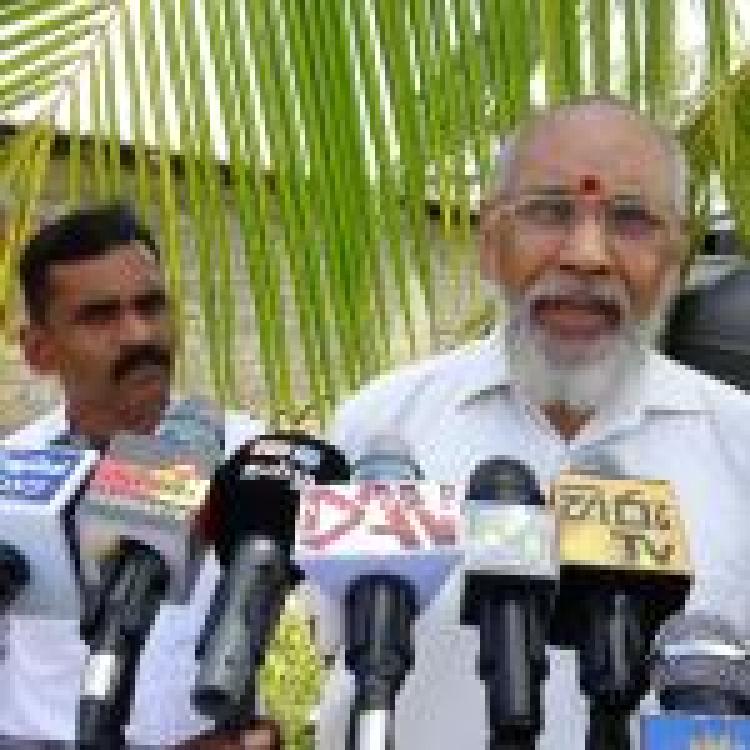Speakers from all three major parties in the UK called for the full implementation of a UN Human Rights Council resolution on accountability in Sri Lanka, during a debate in the House of Lords last week.
Lord Ahmad, Minister of State for the Commonwealth and the United Nations, said, “Her Majesty’s Government have no plans to annul or withdraw those resolutions. The UK continues to believe that full implementation is essential… Without truth, justice, and guarantees of non-recurrence, there can be no lasting reconciliation. In co-sponsoring Resolution 30/1, the Government of Sri Lanka also sent a clear signal that they recognised this.”
Lord Ahmad, Minister of State for the Commonwealth and the United Nations, said he wanted to “I make the Government’s position clear from the outset”.Speakers from all three major parties in the UK called for the full implementation of a UN Human Rights Council resolution on accountability in Sri Lanka, during a debate in the House of Lords last week.
His comments were echoed by Lord Collins, Opposition Whip and Shadow Spokesperson for Foreign and Commonwealth Affairs, who said “there has been such limited progress on accountability”.
“The fact that we are having this debate leads me to think that there is absolutely no room for complacency. It is important to refocus our minds on the central reason that Sri Lanka came before the HRC in the first place: allegations of atrocity crimes,” he continued. “The fact is that these have not in any sense been addressed.”
He went on to state,
“As we approach the 10th anniversary of these events, I hope the Minister will join me in expressing concern that, despite the various promises made by the Government of Sri Lanka before the Human Rights Council in October 2015, they have not yet succeeded in holding accountable a single member of the Sri Lankan armed forces for those appalling atrocities. I hope that he will reassure us that we will seek full implementation of those UN resolutions.”
Baroness Northover, the Liberal Democrat Lords Spokesperson for Foreign and Commonwealth Affairs, also added that “the implementation of these resolutions has been very slow” and there “has been no progress” in setting up a hybrid court. “This kind of hybrid court surely must be held to, as was the case in Cambodia,” she added.
She went on to add,
“Many Tamils and most of the international community feel that reconciliation has stalled. For example, the President was meant to bring about a new constitution that would devolve more powers to the provinces, including land registration and police power, which would increase Tamil self-determination. Talks on constitutional reform have been gridlocked and devolution is now seen as a broken promise. The Tamil advocacy group Together Against Genocide has said that the Foreign Minister’s international statements are contradicted by what senior government officials do in practice; the Verité Research Group has echoed this.
“Clearly, as we saw last year, Sri Lanka is in an unstable political situation… It would be premature to remove any of the pressure on Sri Lanka to adhere to the Human Rights Council’s conclusions and I hope that the Minister will share that view.”
The debate was also attended by supporters of the Sri Lankan government, including Lord Naseby, who called for the withdrawal of the UN resolution. Naseby, who has in the past been labelled an “apologist” for the Rajapaksa regime, reportedly visited Sri Lanka 14 times between 2002 and 2017.
Read more: 'Sri Lanka apologist Naseby must withdraw allegations' – Telegraph
Nevertheless, Lord Ahmad said that the “on the issues that confront the country, it is clear that the pace of change has been disappointingly slow”.
He concluded by stating,
“Let me be very clear and assure all noble Lords that the United Kingdom is a friend of Sri Lanka. We have made a long-term commitment to work with Sri Lanka on improving human rights and supporting the rebuilding of the country after three decades of conflict.”
Days after the debate, the UK announced that it would be leading at the UN Human Rights Council.

